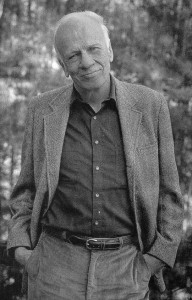Well, we’ve come to the end of The Moviegoer, and it is now time to ask the questions: was Binx successful in his search? Did he find what he was looking for? If he did, was what he found God?
As we talked about in class, it appears that many different people and forces throughout the novel are influencing Binx: his aunt’s family, his mom’s family, the “bachelor life”. I’d say that in the end, Binx chooses the life of his mom’s family, which means he does choose God. One place in the novel where this conversion is evident is the (pretty one-sided) discussion Binx has with his aunt on pages 219-227. Binx pretty much just sits and takes his aunt’s scolding and is even silent when she asks him, “‘What do you love? What do you live for?’” (226). Although his silence might be understood by some as his lack of belief in anything, I think when his aunt asks him this question he forces himself to really think about his answer, and the one he comes up with is not what she wants to hear. Before she leaves, she smiles at him a “smile which…marks an ending” (226). It is indeed the end of any belief Binx had in his aunt’s lifestyle, and the beginning of his turning to his mother’s family’s ways.
Another key part of understanding Binx’s conversion (as well as understanding Percy’s Catholic imagination) is his conversation with Kate on pages 232-235. I think Kate’s description of Binx has many parallels to how many people see God and how Binx eventually comes to see God as well. Kate says to Binx:
I am frightened when I am alone and I am frightened when I am with people. The only time I’m not frightened is when I’m with you. You’ll have to be with me a great deal.
This is a key passage that illustrates how many people feel about God. They may not understand why, but they know when God is in their life, they aren’t afraid. I think this is the reason many people cling so much to God, they need Him to be with them “a great deal.” The truth Percy is getting at here is that with God, the bored self can be a little less bored, the depressed self can be a little less depressed, the impoverished self can be a little less impoverished, and the lonely self can be a little less lonely. Life becomes just that much more bearable with God involved.














